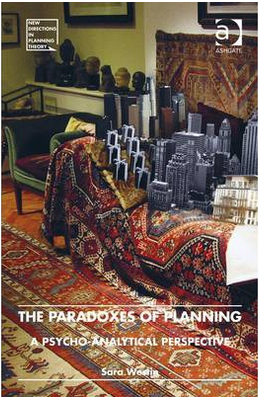
The Paradoxes of Planning: A Pyscho-Analytical Perspective
[BOOK DESCRIPTION]
Why is it that modern architects and planners - these benevolent and socially visionary 'experts' - have created environments that can make one feel so uneasy? Using a philosophical and psychoanalytical approach, this book critically examines expert knowledge within architecture and urban planning. Its point of the departure is the 'the gap' between visions and realities, intentions and outcomes in planning, with particular focus on projects in Sweden that try to create an 'urban atmosphere'. Finding insights from the work of Sigmund Freud and his followers, the book argues that urban planning during the 20th century is a neurotic activity prone to produce a type of alienation. Besides trying to understand the gap between intentions and outcomes in planning, the book also engages with the question of how to define the concept of the urban, juxtaposing different knowledge traditions, contrasting the planner's view of the city with that of the flaneur, and examining texts by Virginia Woolf and August Strindberg.
[TABLE OF CONTENTS]
Contents: Preface;
Introduction: the gap;
Perspectivism;
The eye of the architect - the body of the flaneur;
Planning as a neurosis;
The impossible profession;
Urbanity=?;
The theory of space syntax;
Logic - dialectics;
Conclusion: planned, all too planned;
References;
index.

 新书报道
新书报道